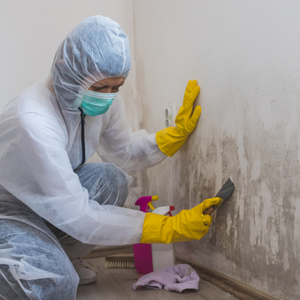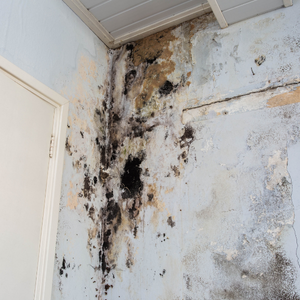
Identifying Mold: Signs and Symptoms in Your Home
When selling your Boston home, identifying mold is crucial to ensure a smooth transaction and maintain property value. Mold thrives in damp environments, so it’s essential to inspect areas with high moisture levels, such as basements, bathrooms, and kitchens.
Look for visible signs like discolored patches on walls or ceilings, which often appear black, green, or white. A musty odor can also indicate the presence of mold hidden behind wallpaper or under flooring.
Pay attention to symptoms in household members; persistent allergies or respiratory issues might suggest mold exposure. It’s important for sellers to recognize these indicators early and address them effectively to avoid complications during the disclosure process when listing the property on the Boston real estate market.
If you’re dealing with mold and worried about how it may affect your sale, CNC Offers in Boston can help by offering solutions that allow you to sell your house quickly without the hassle of costly repairs. Simply contact us today to get started.
Professional Mold Inspection: When and Why It’s Necessary
When selling your Boston home, a professional mold inspection is a crucial step to ensure the property is in optimal condition and to avoid potential legal issues. Mold can be a significant concern for buyers, who may worry about health implications and structural damage.
laws. A thorough mold inspection by a certified professional provides an accurate assessment of any mold presence, helping you address problems before listing your home on the market. This proactive approach not only protects you legally by ensuring full disclosure, as required by Massachusetts real estate laws, but also enhances buyer confidence in the property’s integrity.
Professional inspectors have the expertise and specialized equipment to detect hidden mold that might not be visible to the untrained eye, thereby preventing future complications that could arise from undisclosed mold issues. By investing in a professional inspection, sellers demonstrate transparency and commitment to resolving any mold concerns, potentially increasing their home’s market value and appeal to prospective buyers.
Mold Remediation: DIY vs. Professional Solutions

When selling your Boston home, addressing mold issues is crucial, and deciding between DIY mold removal and hiring professional services involves weighing costs against benefits. DIY mold removal can be a cost-effective approach for small, surface-level mold problems; homeowners can use readily available cleaning products to tackle these minor infestations.
However, DIY efforts may lack the thoroughness and expertise required to address more extensive or hidden mold growth effectively. On the other hand, professional mold removal can be more expensive but offers comprehensive solutions backed by specialized equipment and trained technicians.
Professionals not only eliminate visible mold but also identify and rectify underlying moisture issues that contribute to its recurrence. This thorough approach ensures that potential buyers are reassured about the home’s safety and structural integrity.
Moreover, professional remediation often comes with certification or documentation confirming that the property has been treated according to industry standards, which could be a significant advantage in negotiations during the sale process. Balancing the initial investment in professional services against long-term benefits like increased buyer confidence and potentially higher sale prices is essential for any homeowner navigating this challenge in the Boston real estate market.
How Mold Affects Property Value and Buyer Perceptions
Mold can significantly impact the value of a property in Boston, as well as buyer perceptions. When selling a home with mold issues, it’s crucial to understand how this can affect potential offers and overall marketability.
Mold is often seen as a red flag by buyers due to health concerns and the potential costs associated with remediation. Properties with visible mold or known mold problems may be perceived as less desirable, leading to lower offers or even deterrence from interested buyers altogether.
Buyers are increasingly aware of the health risks associated with mold exposure, such as respiratory issues and allergies, making them more cautious about purchasing homes where mold is present. Additionally, lenders might be hesitant to approve mortgages for properties with unresolved mold issues.
But also, addressing these concerns involves proper disclosure during the selling process, which is not only ethical but also legally required in many cases. Sellers who proactively address and remediate mold problems before listing their homes can preserve property value and improve buyer confidence.
Professional inspection reports and clearance certificates from certified mold remediation specialists can help reassure buyers that the issue has been effectively managed, thereby enhancing the property’s appeal in a competitive real estate market like Boston’s.
Legal Considerations for Selling a House with Mold in Boston, MA
When selling a home with mold in Boston, MA, it’s crucial to understand the legal considerations involved. Massachusetts law mandates that sellers disclose any known defects, including mold issues, to potential buyers.
Failure to disclose such information can lead to legal repercussions and potentially void a sale. Sellers must provide accurate information regarding the presence and extent of mold, as well as any remediation efforts undertaken.
Also, engaging a certified mold inspector can help document the situation accurately. Additionally, addressing mold problems proactively not only complies with legal obligations but can also enhance buyer confidence and potentially improve marketability.
It’s advisable for sellers to consult with a real estate attorney familiar with Massachusetts property laws to ensure all disclosures are properly handled and that they adhere to local regulations throughout the transaction process. Understanding these legal aspects is essential for a smooth sale and helps prevent future disputes or liabilities related to undisclosed mold issues.
Insurance Implications for Homes with Known Mold Issues

When selling a home in Boston with known mold issues, understanding the insurance implications is crucial. Homeowners must be aware that standard homeowners insurance policies often exclude coverage for mold damage unless it results from a covered peril like water damage from a burst pipe.
Sellers should review their insurance policies to determine if any existing coverage may apply to their situation. Disclosing mold problems is not only a legal obligation but also impacts the negotiation process and potential liabilities.
Buyers might request documentation regarding past remediation efforts or current mold conditions, which can influence insurability and premiums. Engaging in proper disclosure can protect sellers from future claims while ensuring that all parties are informed about the home’s condition and related insurance challenges.
Additionally, consulting with an experienced real estate agent or attorney familiar with Massachusetts property laws can help navigate these complexities effectively, ensuring compliance with legal requirements and minimizing financial risks associated with selling a home affected by mold.
Negotiating Price Adjustments Due to Mold Damage
It is important to negotiate any price adjustments due to damage caused by mold when selling your home in Boston in a knowledgeable and open manner. Mold can undermine the value a seller places on a home or a buyer is willing to pay for. Understanding its impacts is critical for both parties.
To start negotiations, identify the damage with a professional mold inspection that can be documented with a report post-completion. This evidence can help form the mold evidence and documentation you seek in order to make concessions.
The time it will take to address mold in the home is completely subjective to the opportunity, extent, and location of the infestation. A seller willing to negotiate up front is exposed to greater value in the deal by avoiding the loss of price further along in the negotiation.
Keeping the mold in the home issue aside, offers such as covering the remediation, repair, or close set aside of venting offers can help facilitate interactions. Understanding your preset value in the Boston location market will further fortify your price negotiation skill, ensuring that much of what you offer, such as staying within the boundaries of the health and safety claim mold, especially loose offers, is practically realistic to both parties.
Marketing a House with Past or Present Mold Issues
When selling a property that has had past or present issues with mold in Boston, the selling strategy must be both transparent and well thought out. Trust is the basis of the selling relationship. Since mold is a sensitive matter for most, full disclosure is a must.
Buyers need structure. Any documents that detail inspections, along with the treatment and air quality tests, offer relief for potential mold buyers.
Install as well as highlight preventative measures intended to reduce the chance of mold growth. Keep the negative moisture-bound moisture out. Focus on the improvements made to the mesh systems that balance fresh air with spent air to define the marketing effort.
Buyers should think about the rich culture that is present in Boston along with the elegant design of the property. This will help shift the perception of potential mold that most buyers are bent on. Working with investor home buyers in Boston offers a more practical option for those looking to close on a home quickly. Many investor home buyers buy homes as they are and don’t need long, extensive repairs.
Is It Possible to Sell a House With Mold?

Yes, it is certainly possible to sell a house in Boston that has mold; however, it involves handling both the disclosure and the mold remediation steps in order to make the sale successful. Buyers may have a hard time with the thought of mold; however, it is best to let the person know the issues and work with them to deal with it.
Mold is a material defect that is required to be disclosed by the law, and Massachusetts is no different. For homeowners in Boston, that means preparing a disclosure that outlines the efforts taken to remediate mold and the remaining issues, alongside the extent of the mold growth.
Yes, mold infestation is a delicate issue and needs to be handled with care; however, something as simple as a professional mold inspection, paired with a remediation service, can work wonders. Be sure to keep documents of every step taken in order to help keep the concerns of the buyer, which stem from health issues or possible damage due to mold, at bay.
The competitive real estate market in Boston does have a solution: for sellers, to sell a house with mold, a stepwise approach paired with the best practices of disclosure will help.
Do You Have to Disclose Mold in Massachusetts?
While selling Boston properties, one must know the rules in the legal context, especially regarding whether the seller needs to disclose the presence of mold in the property. The law requires the seller to disclose any defect that carries value, including mold.
Of all the known defects, the mold issue seems to be the most understated. From a seller’s legal perspective, the outcome of a neglected mold issue could lead to legal action. From a seller’s perspective, it could mean significantly lower demand and the sold value of a property.
were It is recommended that prior to listing a home for sale, a seller, along with their legal team, prepare a set of documents and building history that demonstrates the home being sold as cleared of legal defects. Such documents should include proof that the mold damaged property and its contents were unmitigated and the home sold is therefore the trust of the buyer.
It is indeed a legal requirement of selling properties in Massachusetts to provide proof of trust and justify the legal position with the buyer of the home and the seller’s goodwill to protect and to issue clearance of defects associated with the home. Should you wish to prevent expensive repairs while closing the sale, we buy houses in Massachusetts. It is a fast and easy transaction.
How Much Does Mold Decrease Home Value?
In Boston, a home with some slivers of mold can tremendously lessen its interest and sale value. It is important to understand how much these issues can shift the dollar figure of a home in the current market when trying to sell a home with mold.
Almost every buyer dismisses a home with mold issues due to the cost of remediation, possible health risks, and self-evident value. From what I have observed, the value of a home with mold issues is slashed by as little as 10% and as much as 50%, depending on the severity of the infestation and the extent of the visible damage.
In a real estate sale, not disclosing the mold issues a home has retains a positive moral standing, but in the USA, the seller is making themselves prone to trouble. These repairs and the removal of mold have the potential to lessen these losses in the long run.
Directly mold the misinformation on a home, and mold and structures can have an increase in home value all at once due to the smoother selling process. Sellers can control the transparency by ensuring that the home is sold at the value they configured.
Do you need to sell a house with mold? Avoid expensive repairs, sell quickly, and enjoy a hassle-free process. CNC Offers is here to help. We provide fair cash offers, handle all the details, and make the sale simple. Have questions or ready to sell? Call us at (781) 205-9928 for a no-obligation offer. Get started today!
Helpful Boston Blog Articles
- Selling Your Home By Owner In Boston, MA
- Closing Costs When Selling A House Without An Agent In Boston, MA
- Sell Your Boston, MA, Home When Behind On Mortgage Payments
- Selling Inherited Real Estate With Multiple Owners In Boston, MA
- Who Covers Appraisal And Inspection Costs In Boston, MA, Real Estate
- How To Navigate Selling A House With Tenants In Boston, MA
- Who Pays Taxes When Selling A House In Boston, MA
- Guide To Selling Jointly Owned Property In Boston, MA
- Selling A House With A Mortgage In Boston, MA
- Guide To Selling Your Boston, MA, Home With Mold

| BILL GASSETT | HOME INSPECTORS | HOME INSPECTION | RHODE ISLAND | STATE OF MASSACHUSETTS | REALTOR |
| CROSS-CONTAMINATION | CONTAMINATION | MORTGAGE LENDING | MORTGAGE LENDERS | WOOD PRODUCTS | |
| MONEY | HIGH-EFFICIENCY PARTICULATE AIR | HEPA | LET THE BUYER BEWARE | CAVEAT EMPTOR | WARRANTY |
| ENVIRONMENTAL PROTECTION AGENCY | ENVIRONMENTAL PROTECTION AGENCY (EPA) | TILES | METROWEST | HAZARDS | HEALTH HAZARD |
| FLOODING | FLOOD | CRAWL SPACES | ATTICS | TAXES | STAINS |
| REASON | WATER PIPES | PLUMBING | LIABILITY | FUNGUS | FEES |
| EVIDENCE | DISEASE | ILL HEALTH | BLEACH | ANIMALS | MOLD IN YOUR HOME |
